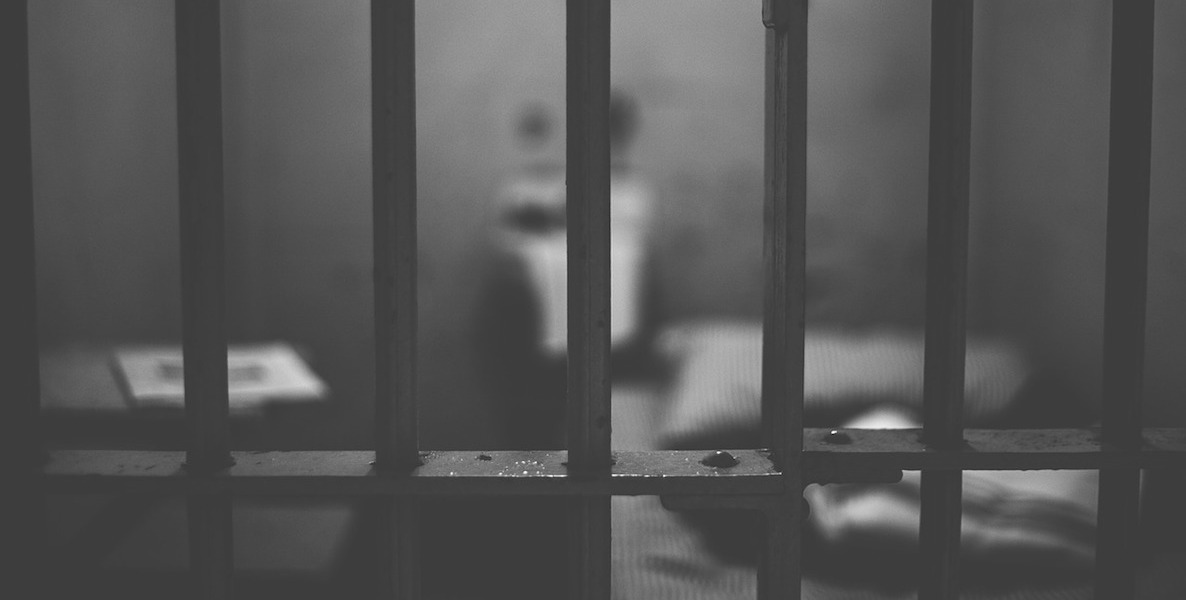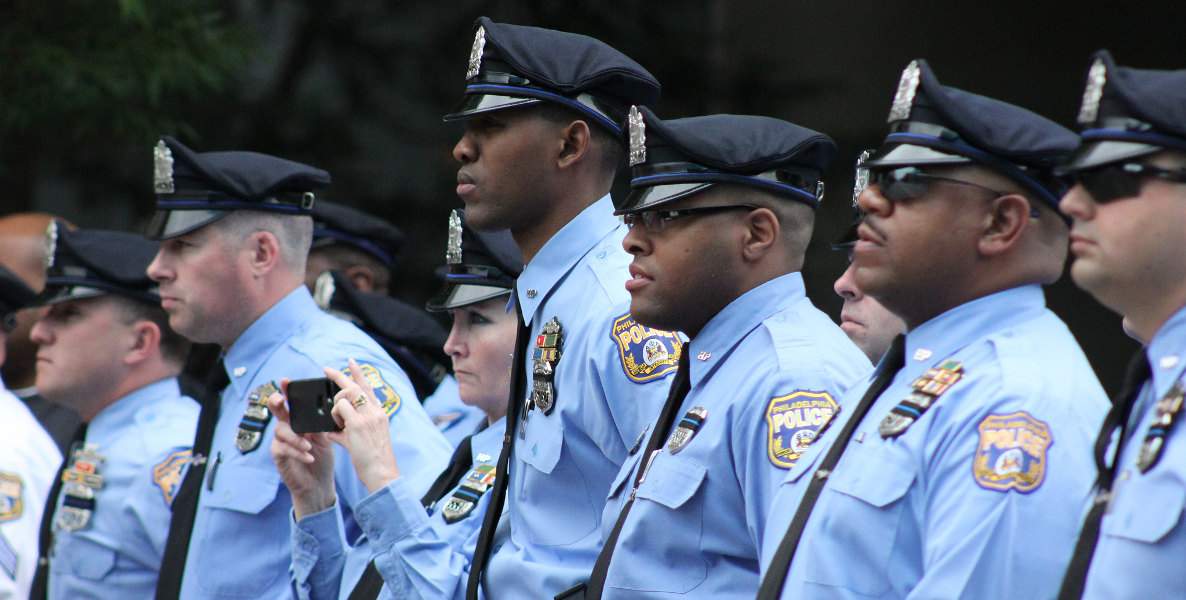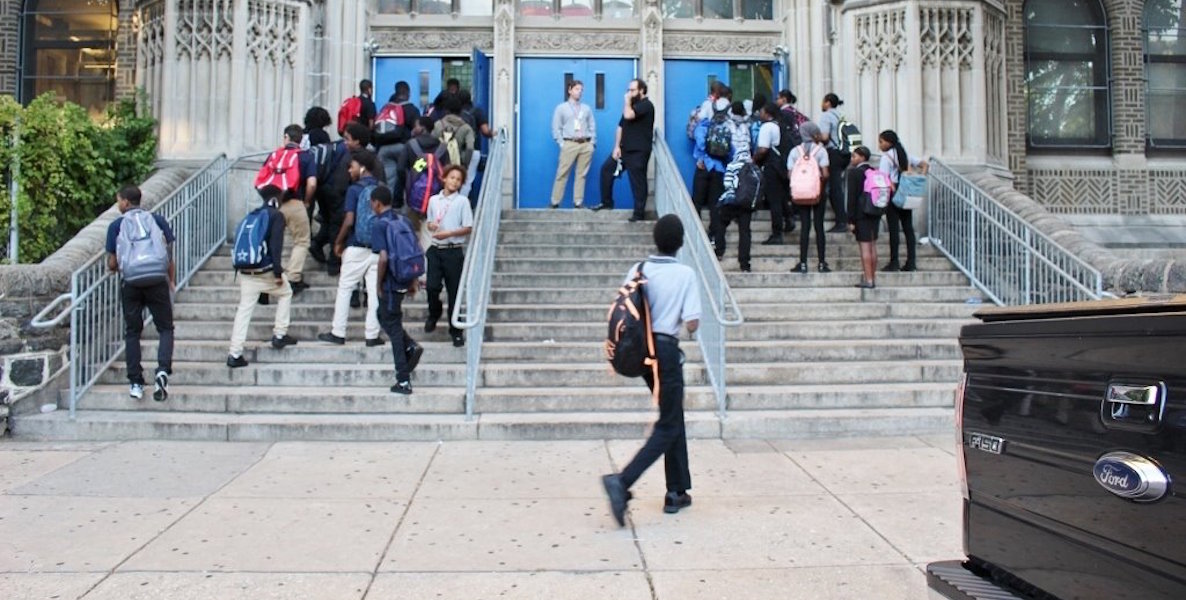Dear Police Officers,
In case you haven’t taken the time to notice, our students are amazing. Not a little amazing either. Very amazing. They are awesome!
I wanted to tell you that, but I am also writing out of some deep and ongoing frustrations—some from national incidents, some local—all problematic and deeply concerning.
Last year, a female officer put one of my 7th graders in handcuffs and put her in the back of her squad car. When I got the call, I was extremely concerned. When I found out it was because the twelve-year old “got smart,” I was livid. To me, that is code for something with a sinister and racist history.
History and the present run together when a Black girl, a student, is told not to get uppity. When confronted, the officer said, “Tell my Captain! I don’t want to work with these badass kids anyway!”
Officer, that’s 90 percent of the problem. The other 10 percent of the problem is that your Captain sent you here anyway.
Today, police officers on dirt bikes, donning helmets and sunglasses, confronted my Assistant Principal of Culture because she had the audacity to tell the police that riding their dirt bikes on the sidewalk teeming with students was dangerous, counterproductive, and aggressive. That pissed them off. How dare she?!
Officers on dirt bikes speeding on the sidewalk, aggressively barking orders to kids who were doing nothing but catching up with their friends and watching officers act crazy, made no sense. Our school staff want our students and the community to be safe. You claim to want the same thing.
When another Assistant Principal told the officers that their actions would never occur at a school’s dismissal in her affluent neighborhood, it gave them pause (but, not for long). They knew she was right.
![]() In both instances, the officers, in their distorted minds, had to do these things in order to keep our community “safe.” That means our community continues to be targeted as a hostile enemy territory to oversee, control, and intimidate. Schools are not inviolate when it comes to this sort of police aggression.
In both instances, the officers, in their distorted minds, had to do these things in order to keep our community “safe.” That means our community continues to be targeted as a hostile enemy territory to oversee, control, and intimidate. Schools are not inviolate when it comes to this sort of police aggression.
Years ago, during my first year as a principal at Shaw Middle School in southwest Philly, I left the building one evening after an exhausting day. A police officer pulled me over. Although I knew I didn’t do anything, it was still unnerving. It was after 8:00 pm, in the winter. Dark, cold, poor street lighting, and two officers on both sides of my car. Not a good (or safe) situation for any Black man in America.
Asking what precipitated the stop only got the police officer riled up. From the cop’s perspective, I was questioning authority. Forget that he was assaulting my humanity. When he barked for me to get out of the car, I complied, showed no aggression, and continued to politely insist for answers.
Talk and interact with our students in the same manner you would want someone interacting with your own daughters and sons—regardless of if they have “smart mouths.” You’re the adult. You’re the professional. Have more tools in your toolkit besides weapons and aggression.
Although I would later receive a letter from Internal Affairs stating that the officer was reprimanded for my unlawful arrest, it did little to increase my confidence in the police department’s collective ability to serve as problem solvers, de-escalators, or invested community members.
Today, the scene at our students’ dismissal was dangerous—and not because of anything our students were doing. Officers on dirt bikes speeding on the sidewalk, aggressively barking orders to kids who were doing nothing but catching up with their friends and watching officers act crazy, made no sense. Our school staff want our students and the community to be safe. You claim to want the same thing. There are ways that you can partner with us, but you need to be open to feedback and a real partnership. Our students deal with enough bullies. They don’t need bullies with badges to join the fray.
I am all about trying to find solutions, so here are some suggestions for the police who work in the vicinity of schools (or anywhere else):
- Don’t make assumptions about what school communities need. It is not a war zone. We don’t want “shock and awe” anywhere, let alone on 53rd and Media Street. Shock and awe in communities is nothing short of terrorism.
- If you are assigned to support school dismissals, meet with school staff to see what their dismissal deployment is and what their safety needs are. By partnering and being open to the school’s actual needs, a safe corridor can be established. Don’t undermine the safe corridor with your own actions.
- Recognize that many Black youth don’t trust police officers for good reasons. Instead of using that to create more hostility, work with school staff to see how you can build relationships with students. Staff will know. Look for ways to build bridges. Don’t seek ways to enlarge the chasm.
- Be proactive in getting to know the population you were hired to serve. Be respectful, curious, and humble. Be driven by service—not by the desire to intimidate, dominate, and overpower.
- Talk and interact with our students in the same manner you would want someone interacting with your own daughters and sons—regardless of if they have “smart mouths.” You’re the adult. You’re the professional. Have more tools in your toolkit besides weapons and aggression. If you feel underwhelmed by the training you have had so far, seek out help. That’s what professionals do.
- Come to the job with a “protect and serve” mindset, not a mindset to threaten and intimidate.
- Lastly, people often want more officers to look like the communities they are supposed to serve. I haven’t always found that to be helpful. My experience has been that Black cops were often worse—today was no exception. Too often, the Black police officer acts like the de facto Black plantation overseer. But, I am open. Perhaps, it will help the relationships that our youth have with the officers who patrol our community.
If authentic “serve and protect” police can partner with authentic “serve and educate” school-based staff, positive things just might happen for all of us.
In the meantime, get to know our students. They are amazing.
Sincerely,
Sharif El-Mekki
Sharif El-Mekki is the principal of Mastery Charter School–Shoemaker Campus, a neighborhood public charter school in Philadelphia that serves 750 students in grades 7-12. El-Mekki will be contributing regular columns from the school front lines this year.
A version of this article was originally published on phillys7thward.org.
Header photo: Students outside Mastery Shoemaker’s building last week






